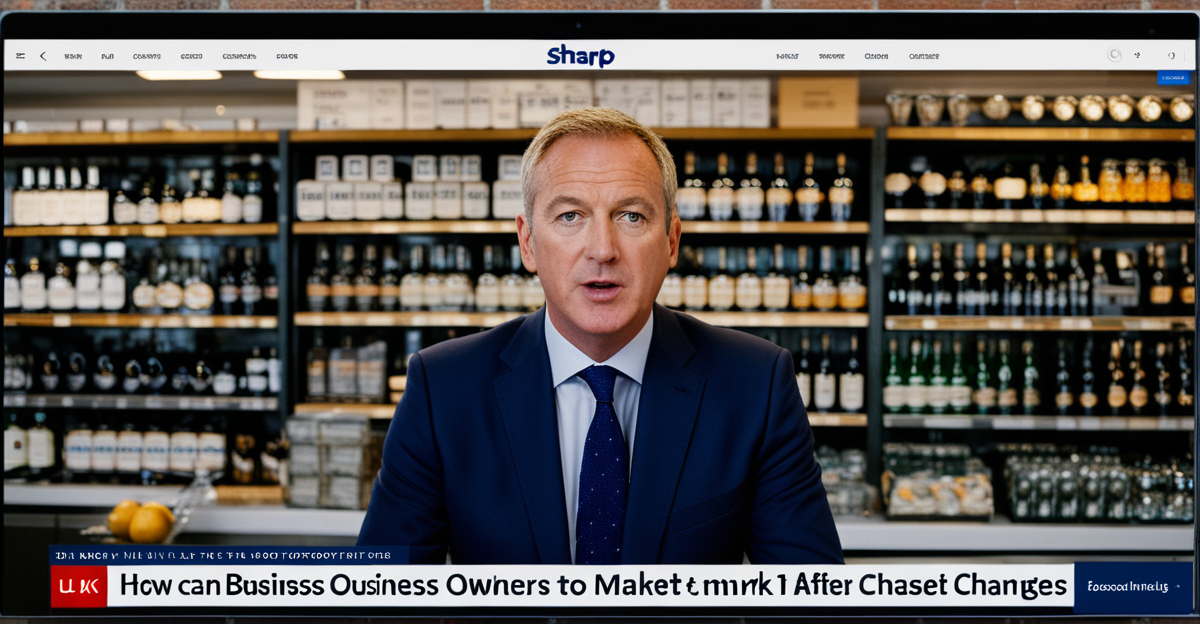Actionable Strategies for UK Entrepreneurs in the Post-Brexit Market
Navigating the post-Brexit landscape requires UK entrepreneurs to adopt targeted business adaptation tactics. Key challenges include regulatory shifts and customs complexities, demanding swift adjustments to stay competitive. Practical steps involve staying updated with evolving compliance demands and investing in staff training to handle new procedures effectively.
One essential Post-Brexit strategy is leveraging fresh trade relationships outside the EU. The UK now engages in multiple free trade agreements, opening doors to diverse markets. Entrepreneurs can capitalize on these by researching partner countries’ demand trends and tailoring offerings accordingly.
Also to see : How Can UK Companies Enhance Their Global Competitiveness?
Additionally, streamlining operations via digital tools helps manage increased administrative tasks. For example, using software for customs documentation reduces errors and speeds processing. Networking with local trade bodies also provides timely Brexit business tips, supporting informed decision-making.
Implementing these strategies enhances resilience, ensuring businesses not only survive but thrive amid change. By understanding both challenges and opportunities, UK entrepreneurs can transform disruption into advantage through smart, proactive business adaptation.
Also read : How Can UK Businesses Adapt to Future Economic Trends?
Actionable Strategies for UK Entrepreneurs in the Post-Brexit Market
UK entrepreneurs face a spectrum of challenges and opportunities in the post-Brexit era. One pivotal Post-Brexit strategy is mastering new regulatory landscapes. Understanding the nuances of customs declarations and import/export documentation is essential for smooth operations. Entrepreneurs should prioritize compliance by engaging with official guidance and leveraging digital solutions to minimise errors and delays.
Business adaptation also demands revisiting supply chains. UK entrepreneurs can reduce vulnerabilities by diversifying suppliers and exploring local or alternative markets. This approach mitigates risks linked to border delays or increased tariffs and helps maintain steady inventory flow.
Another effective tactic involves tapping into emerging trade relationships. The UK’s new agreements offer access to non-EU markets, fostering growth beyond traditional boundaries. Researching these markets’ specific needs enables entrepreneurs to tailor offerings and capitalise on fresh demand.
Practical Brexit business tips suggest ongoing staff training on compliance and trade procedures. This builds internal capacity to navigate complex policies confidently. Networking with trade organisations further keeps entrepreneurs informed, boosting agility in adapting strategies. Embracing these steps allows UK entrepreneurs to convert post-Brexit disruption into sustainable business growth.
Actionable Strategies for UK Entrepreneurs in the Post-Brexit Market
Post-Brexit strategies for UK entrepreneurs focus heavily on business adaptation to a transformed economic environment. One key challenge involves navigating complex changes in customs and regulatory requirements. Entrepreneurs must integrate Brexit business tips by adopting digital platforms that automate compliance tasks, reducing costly errors and downtime. This practical approach speeds operations and enhances accuracy, which is critical amid evolving rules.
Another vital step is proactively exploring new trade networks. Leveraging the UK’s expanding free trade agreements enables entrepreneurs to diversify beyond traditional EU markets, tapping into emerging demand. Market research tailored to these regions allows businesses to adapt products and services effectively, aligning with local preferences. Such targeted moves position UK entrepreneurs competitively.
Additionally, frequent staff training on compliance updates and customs procedures strengthens internal capacity for handling post-Brexit complexities. Collaboration with trade organizations offers valuable insights, enabling agile responses to policy shifts. Together, these blended actions form a robust framework that supports sustainable growth and resilience for UK entrepreneurs adjusting to the post-Brexit market landscape.
Actionable Strategies for UK Entrepreneurs in the Post-Brexit Market
Understanding the complexities of post-Brexit regulations is central to effective business adaptation. Many UK entrepreneurs face challenges such as customs delays and increased paperwork. Practical Brexit business tips recommend leveraging digital tools that automate compliance tasks, which reduce errors and free up valuable time. Automating processes related to customs declarations helps entrepreneurs meet requirements more efficiently.
Another crucial element involves embracing the opportunities of new trade relationships. The UK’s trade agreements with non-EU countries create openings for businesses to diversify markets and reduce dependency on traditional EU partners. Successful post-Brexit strategies include thorough market research to tailor products to emerging demands in these regions, enhancing competitiveness.
Moreover, continuous staff training plays a vital role. Educating teams on updated regulations and customs procedures enhances operational agility and ensures adherence to changes. Combining these approaches fosters resilience, allowing entrepreneurs to adapt proactively rather than reactively.
By weaving together regulatory knowledge, technological adoption, and exploration of fresh markets, UK entrepreneurs can implement robust Post-Brexit strategies. This comprehensive response not only addresses present challenges but also positions businesses for sustainable growth in a shifting economic landscape.
Actionable Strategies for UK Entrepreneurs in the Post-Brexit Market
UK entrepreneurs must keenly focus on business adaptation to thrive amid post-Brexit changes. One crucial aspect involves managing evolving customs and regulatory frameworks efficiently. Practical Brexit business tips recommend implementing robust digital tools to automate and streamline compliance tasks. This reduces human error and expedites paperwork, which is vital given the increasing complexity of rules.
Another effective strategy calls for deep engagement with new trade relationships. Post-Brexit, the UK has expanded its network of free trade agreements, presenting fresh market access opportunities. Entrepreneurs should conduct targeted market research to identify demand shifts and adjust products or services accordingly. Tailoring offerings to these evolving conditions enhances competitiveness beyond traditional EU markets.
Moreover, continual adaptation in operational processes underpins successful post-Brexit strategies. This includes diversifying suppliers to mitigate border delays and revising distribution approaches to accommodate new customs protocols. Coupled with ongoing staff training on regulation updates, these steps foster agility and reduce disruption risks.
In sum, proactive integration of technology, market insight, and operational flexibility forms the backbone of effective Post-Brexit strategies for UK entrepreneurs navigating this complex environment.






